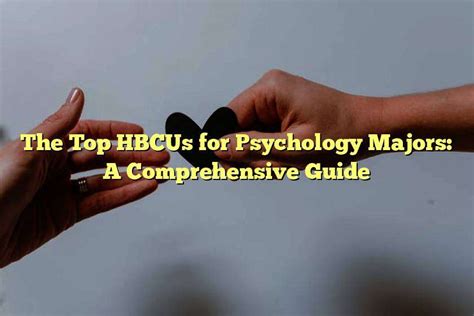Historically Black Colleges and Universities (HBCUs) hold a significant place in American higher education, providing diverse and transformative learning environments for students from all backgrounds. With a rich legacy and a commitment to academic excellence, these institutions continue to play a vital role in shaping the future leaders of our nation.

Understanding the History and Significance of HBCUs
HBCUs were founded in the late 19th and early 20th centuries to address the educational needs of African Americans who were denied access to mainstream colleges and universities. Facing systemic racism and discrimination, these institutions became beacons of hope and empowerment, nurturing the minds and aspirations of generations of students.
Today, HBCUs represent a vibrant and integral part of the American educational landscape, boasting notable alumni who have excelled in various fields, including academia, business, politics, and the arts. They continue to be a source of pride for African American communities and a driving force for equity and inclusion in higher education.
Enrollment and Impact of HBCUs
According to the National Center for Education Statistics (NCES), there are currently 101 HBCUs operating in the United States. These institutions enroll approximately 293,000 students, representing 9% of all African American college students.
HBCUs have a significant impact on the lives of their students, providing a supportive and nurturing environment that fosters academic success. They offer a wide range of programs, from humanities to STEM fields, and place a strong emphasis on community engagement and social responsibility.
Rankings and Reputation of HBCU Schools
Various organizations rank HBCUs based on factors such as academic quality, student satisfaction, and graduation rates. Here are some notable rankings:
| Ranking Organization | Metrics |
|---|---|
| U.S. News & World Report | Overall Quality, Faculty Resources, Graduation Rates |
| Forbes | Return on Investment, Faculty Salary |
| Money Magazine | Value, Affordability |
| Niche | Overall Grade, Student Life |
These rankings provide valuable insights into the strengths and opportunities of HBCUs, helping prospective students make informed decisions about their college choices.
Leading HBCUs by Enrollment
The largest HBCUs in the United States, based on enrollment data from the NCES, are:
| University | Enrollment |
|---|---|
| North Carolina A&T State University | 13,434 |
| Howard University | 12,987 |
| Florida A&M University | 10,985 |
| Texas Southern University | 10,903 |
| Southern University and A&M College | 10,263 |
| Jackson State University | 9,611 |
| Alabama State University | 9,256 |
| Hampton University | 9,054 |
| Delaware State University | 8,744 |
| Morgan State University | 8,265 |
These institutions offer a diverse range of academic programs, research opportunities, and student life experiences, attracting students from across the country and around the world.
Notable HBCU Alumni
HBCUs have a long and illustrious history of producing influential leaders and change-makers. Some notable alumni include:
- Martin Luther King Jr., civil rights activist and Nobel Peace Prize laureate (Morehouse College)
- Shirley Chisholm, first African American woman elected to Congress (Brooklyn College)
- Barack Obama, 44th President of the United States (Columbia University)
- Oprah Winfrey, talk show host, producer, and philanthropist (Tennessee State University)
- Kanye West, rapper, producer, and entrepreneur (Chicago State University)
These individuals have left an indelible mark on society, demonstrating the transformative power of HBCU education.
The Future of HBCUs
HBCUs continue to face challenges such as underfunding and a lack of resources. However, they remain resilient and committed to their mission of empowering students and transforming communities.
The future of HBCUs looks bright, with institutions embracing innovation and expanding their reach. They are partnering with other institutions, businesses, and community organizations to create new opportunities for students and address pressing societal issues.
Conclusion
HBCUs are vibrant and enduring institutions that have played a pivotal role in American higher education. They provide transformative learning environments, foster academic excellence, and empower students to become leaders and change-makers. As they navigate the challenges and embrace the opportunities of the 21st century, HBCUs will continue to make significant contributions to our society and the world.
